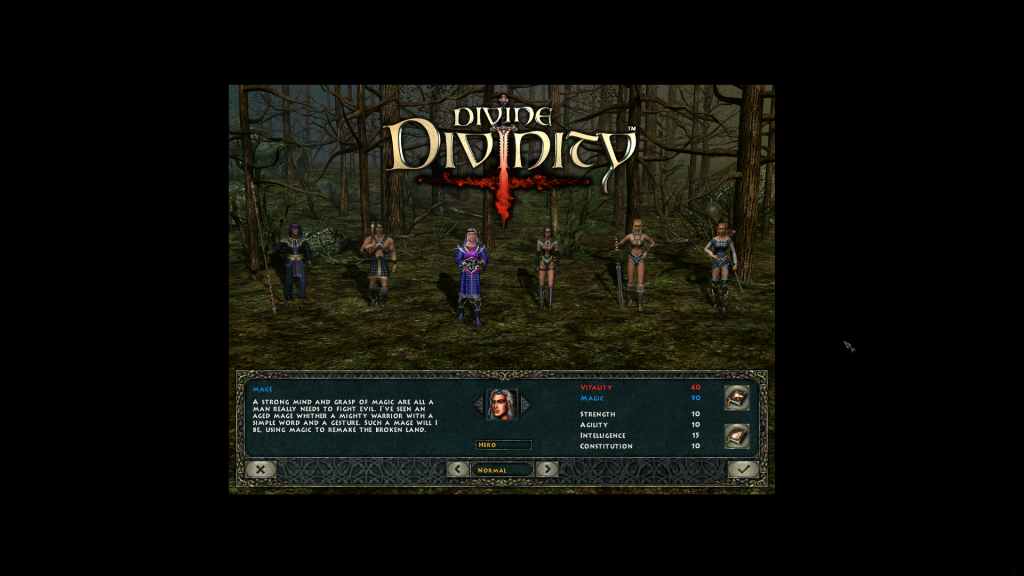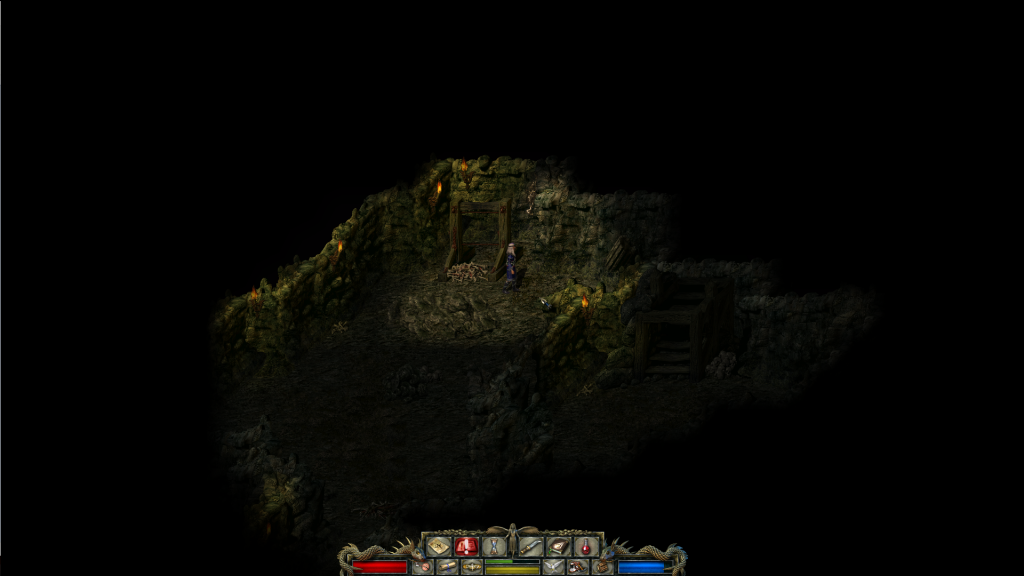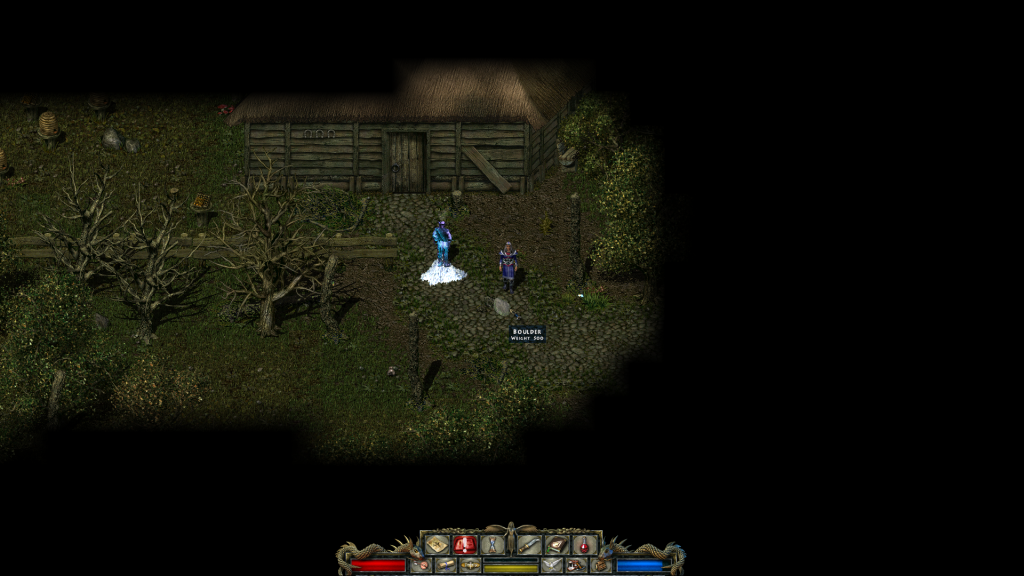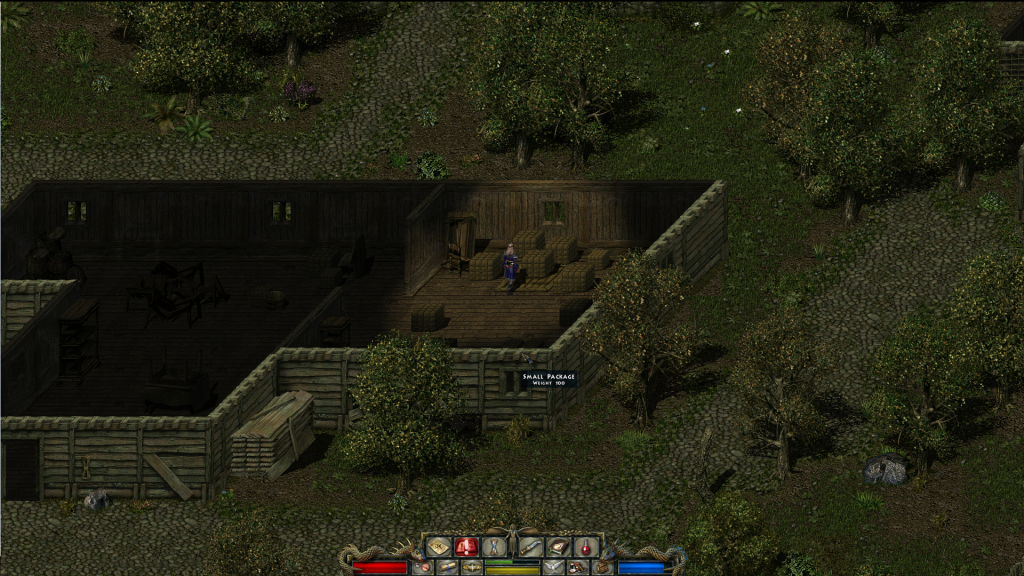It’s Baldur’s Gate. Wait–no, it’s Diablo. Wait–no, it’s…
Okay, so let’s get down to it. I’m a mechanics/immersion guy. I want my mechanics to build the foundation for immersion and I want my immersion to flow seamlessly into my mechanics. While immersion is a bit trickier to pin down, mechanics oftentimes make themselves known through combat and thus a stellar combat system is oftentimes a prerequisite for a game to have before I’ll consider it to be good. I’m confident that Divine Divinity is a Tier 1 game… but I can only conclude that I must have been tricked into thinking this, for in a time-span of over an hour I got into combat once and only once. A revenant in a whine cellar sprinted towards me and hit me for about a third of my health. I ran away from it, it hit me again, and I successfully fled through the cellar door. That was it. I’m baffled. How did a game–and not just a game, but essentially a Diablo-esque Baldur’s Gate-esque RPG game–captivate my attention with almost no emphasis on combat whatsoever?
I think it’s because DD and other games like it have a slow powerful burning that isn’t flashy or stylish. As a cohesive whole, it grips the player in a manner that respects the player and the world that they’ve created at the same time. Sometimes it seems if people think that great RPGs have to start off slow. I wonder if this is because so many great RPGs both present and past often do start off slow. I think what may be misunderstood is that this is not a case of A creates B, but a case where C creates B with the side effect of A. In other words, good RPGs often start off slow, but a slow RPG is not necessarily a good one. Too many RPGs begin with 10 minute-long unskippable cinematics that try to play up the world as something so epic that it’s beyond the scale of grand. Tutorials and introductions take 1 to 2 hours before the uncomfortable grip of the devs are released and the player is actually allowed to begin the game. Things like this are often justified with “the game gets good later,” or “it starts out slow because it’s building something up.” While these things can be said about a game, it’s not true that the game needs to be boring or restrictive.
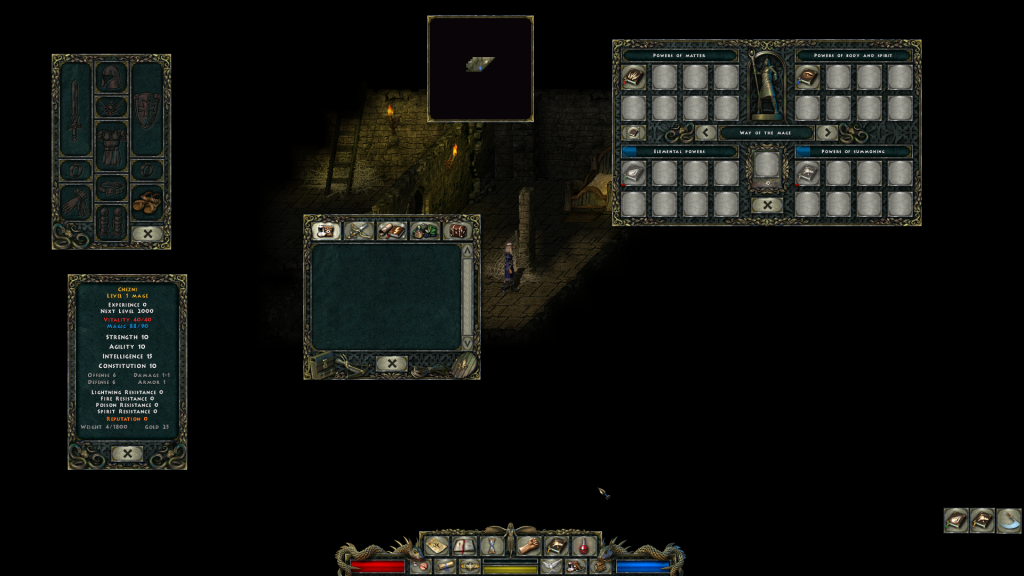
DD starts you out with noting. NOTHING! And it’s slow as heck. And it doesn’t matter. Why? Because the game let’s the player do everything. I wake up in some creepy dungeon-like room on a bed. I figure out how to pick up items. I discover that light sources are interactable. I familiarize myself the menus because I’m curious about the game and I’m not an idiot. I climb out of the dungeon and find that it’s a cellar. Some guy talks to me–I choose a few dialogue options and talk back. He tells me something interesting, but doesn’t force me to go look into it. I walk around the town at my own pace. I have no idea where I am, but slowly piece things together. I talk to a fountain. You heard me. I find a weird key next to a graveyard. Because I’m curious, I read the grave and can deduce that the husband of the body beneath me is happy to be rid of her. This is something interesting that I log away in the back of my head. A guy gets frozen. I meet some sick people. I talk to a lizard. I break into a house through a well. I get a mystery and a clue about catacombs. I discover that I can move objects in the world by clicking and dragging them. I run into a grumpy dwarf who yells at me for picking herbs. I uncover a cellar hidden underneath stacks of “packages.” I explore the cellar and run away when a corpse talks to me and kicks my ass. I move some dragon statues around. I uncover a secret catacomb. At no point did the game tell me what to do, give me a tutorial, or force me to do anything. It moved slowly–it wasn’t flashy. It wasn’t filled with combat. I was engaged the entire time.
I want to play more of this game, because it’s letting me play it. It’s not telling me I’m a hero, it’s letting me decide to be one. It’s not telling me to help townspeople, I’m choosing to become involved in what they’re doing because they are interesting to me. The game isn’t hooking me in with artificial excitement, it’s drawing me in because it feels deep, like it has a story to tell, a mystery to reveal and an adventure to unfold–and not one that it’s going to force me to experience. I get the feeling that I could go through the game with my eyes closed (so to say) and get very little out of it if I chose, or I could study the details of everything presented to me and receive a rewarding experience. I suppose I could be wrong. I did after all only play the game for a little while. If I’m right though, the game will be well worth the time put into it.
